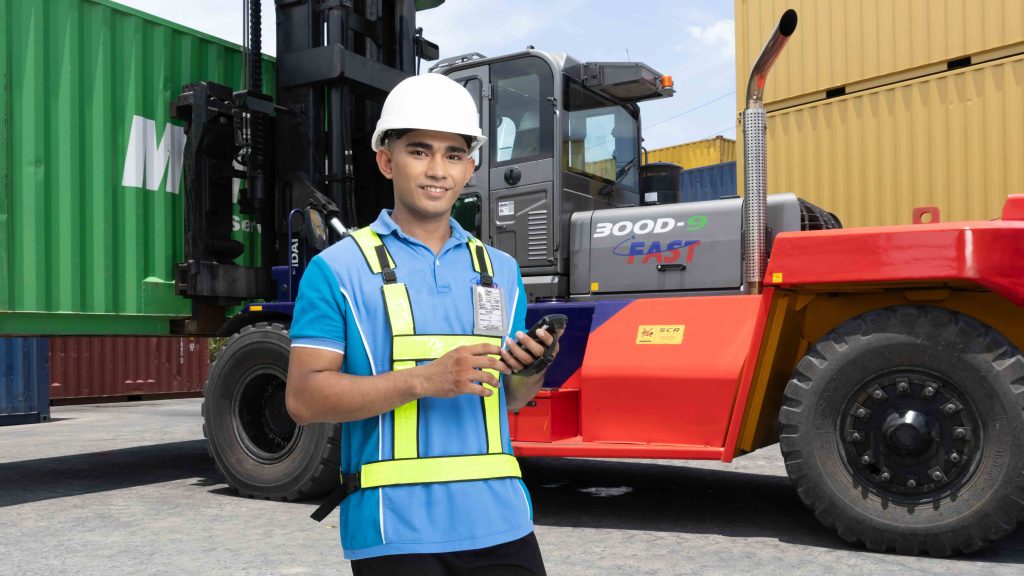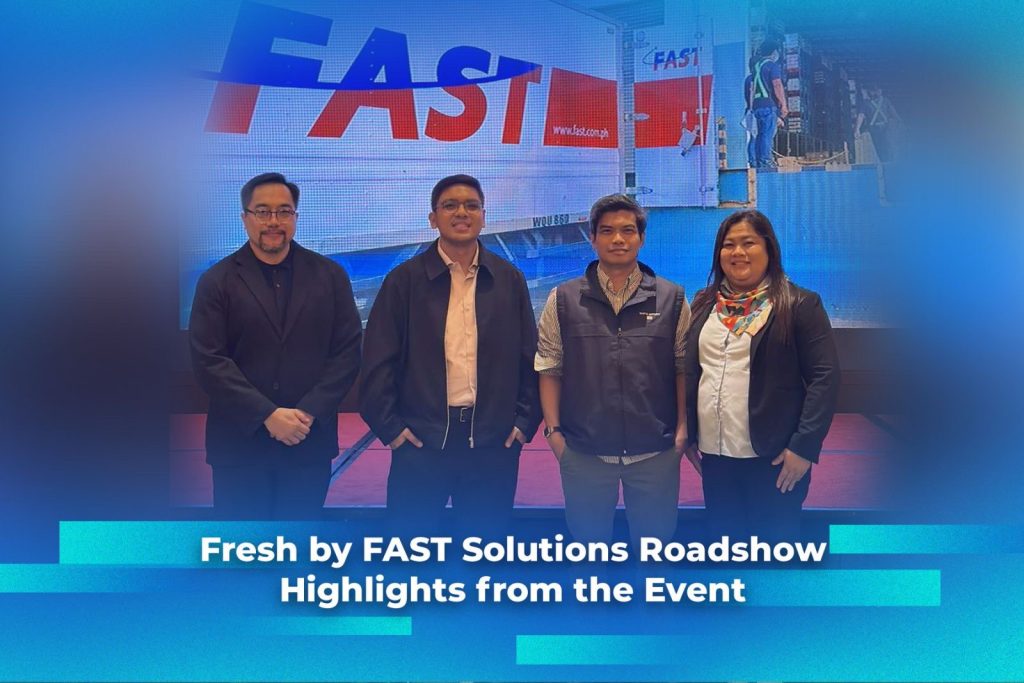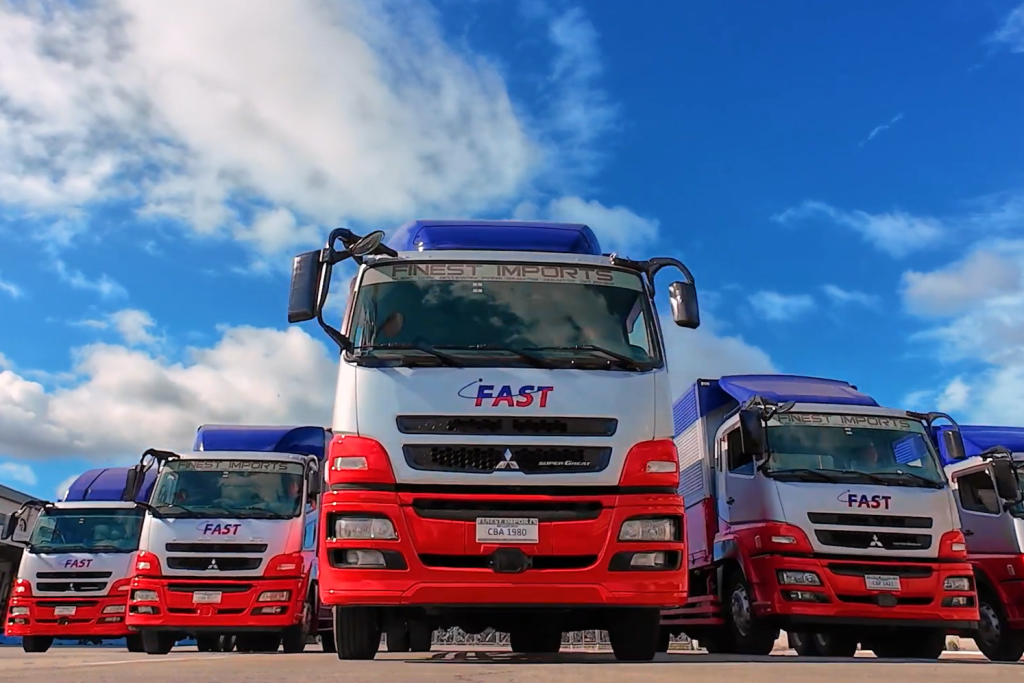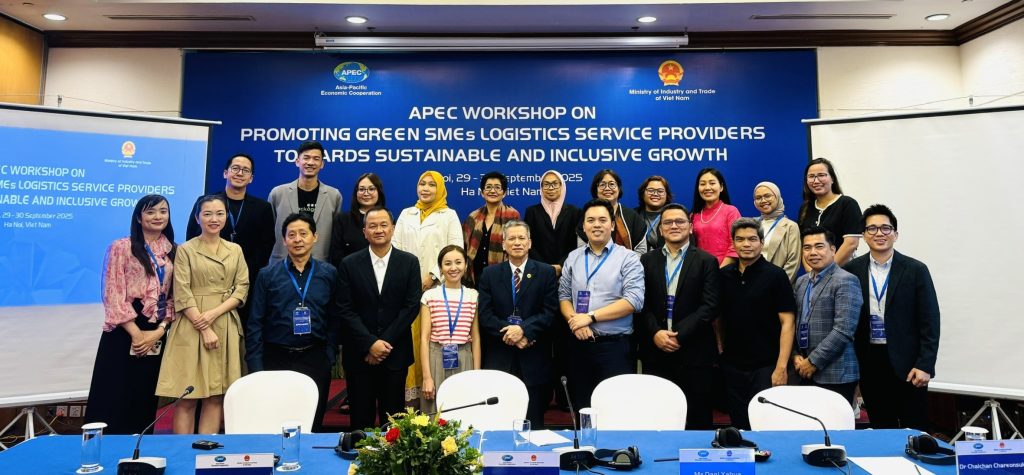
FAST Logistics Group, the Philippines’ leading end-to-end logistics provider, shared its initiatives to support small and medium enterprises (SMEs) and help them transition to greener supply chains during Day 2 of the APEC Workshop on Promoting Green SMEs Logistics Service Providers.
Speaking at the Fortuna Hotel in Vietnam on Tuesday, September 30, FAST CEO for Logistics Manuel L. Onrejas Jr. introduced the company’s “Big Brother” approach.
At Session 5: Case Studies in APEC Member Economies, Manny emphasized that while SMEs often focus on short-term survival, larger players — including corporations, governments, and multilateral organizations — can act as “big brothers” to help smaller firms adopt greener and more professional logistics practices.
Onrejas said FAST helps SMEs in two ways. Firstly, it empowers small entrepreneurs and farmers by giving them access to professional or “white glove” logistics solutions. Leveraging FAST’s expertise in FMCG logistics, SMEs enjoy proper packaging in stackable boxes, insured shipments, and reliable delivery to resellers and trade partners in excellent condition.
Secondly, he said FAST is assisting subcontracted truckers through ank loans, access to cheaper fuel and tires, and regulatory compliance assistance. FAST also integrates them into its transport solutions, such as GPS, AI-route planning, and Transport Management System.
Collaboration with Large Companies and Governments
Manny also stressed that large companies and governments serve as “second and third big brothers.” Their scale and resources allow SMEs to benefit from advanced technology.
He cited FAST’s pilot program, where AI-assisted load planning reduced the need for 1,730 trucks in just four months. This cut fuel use and emissions while still moving 20,000 tons of cargo.
“When all the big brothers work together, some of the big goals become achievable,” Manny said.
A Whole-of-Society Approach to Green Logistics
During the session, Manny proposed expanding this model into a “whole-of-society approach” to greening logistics, where multilateral institutions such as the World Bank, UN Economic and Social Commission for Asia and the Pacific, and APEC act as catalysts in creating knowledge-sharing loops and replicable playbooks across member economies.
He further shared FAST’s plans to broaden inclusivity in logistics by training more women drivers, hiring persons with disabilities for warehouse operations, and engaging returning overseas Filipino workers.
“It truly takes a village to green SME logistics,” Manny said. “This is tough work, but it’s work worth doing. After all, what’s at stake is the survival of the planet, which is our shared home.”
FAST has also been working with government agencies, including the Department of Trade and Industry, to strengthen the capabilities of SMEs and promote sustainable logistics practices.
Commitment to Sustainability and Innovation
Onrejas concluded his presentation with a call for APEC economies to sustain collaboration through virtual working groups and pilot projects, emphasizing that knowledge exchange and partnership are critical to advancing green and inclusive logistics.
“Greening logistics cannot be done in isolation. It will take big brothers — large companies, governments, and multilateral institutions — working together to help small and medium enterprises make the shift,” Manny said. “After all, what’s at stake is the survival of our planet, our shared home.”
FAST’s active participation in the two-day workshop reaffirmed its commitment to empowering SMEs and promoting sustainable supply chain practices across the Asia-Pacific region.
With over 50 years of industry leadership, FAST continues to lead the way in shaping smarter, greener, and more inclusive logistics in the Philippines and beyond. Connect with our Solutions Experts and discover how we can help your business move forward.
Categories
-
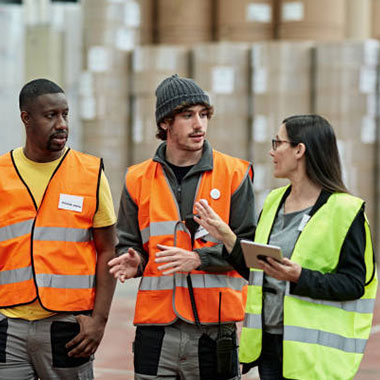
FAST Ahead
Includes case studies and testimonials of our partners as well as other featurettes from industry experts
-

FAST Hacks
We simplify logistics terms and provide practical tips and solutions for the DIY in you
-
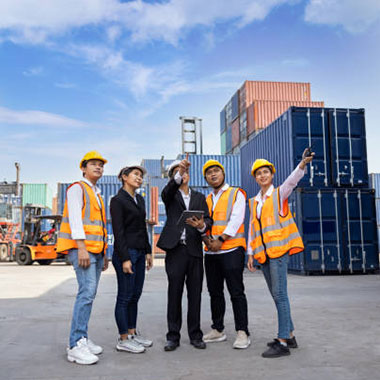
FAST Highlights
Know more about our history, various brands, achievements, and news updates
-
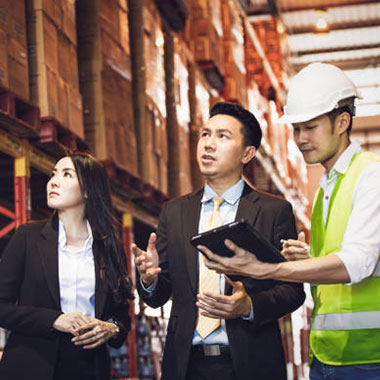
FAST Moments
Get to know the people of FAST, our employee programs, as well as our various ways of giving back to the community
-
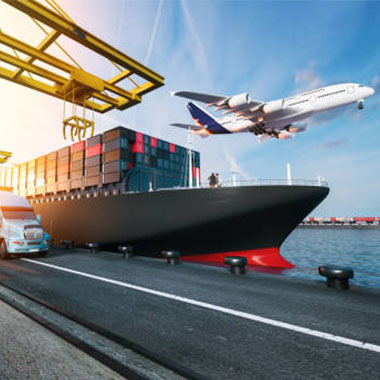
FAST Solutions
Learn more about the various logistics solutions that we cater to and offer our clients, as well as tech innovations, and service facilities
